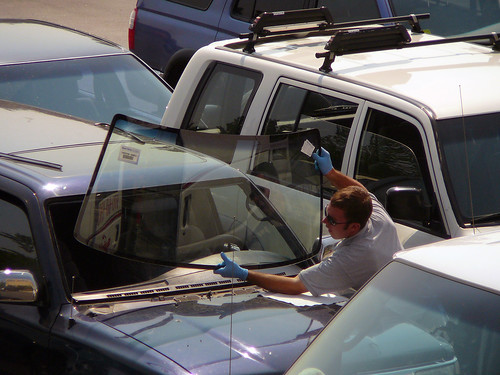The cost of owning a car is high, and when drivers are underwater with their payments and insurance, it isn’t uncommon for them to resort to fraud. According to the Coalition Against Insurance Fraud, auto insurers pay out nearly $20 billion in false or egregious claims every year, which makes up 20 percent of their total annual payouts. Not only is fraud a criminal act, it also drives up the premium costs of all drivers. Still, the past years have seen increasing unemployment and rising gas prices, creating an environment where desperate people are more likely to try and take advantage of their policies. Fortunately, most insurance companies and police departments are better at spotting it than perpetrators might realize.
Vehicle Dumping
It’s an age-old scenario. A driver reports their vehicle stolen, then it turns up in flames in an abandoned lot or at the bottom of a lake. The driver then collects a hefty insurance payout. The recession created a huge spike in cases of “owner give-up” – in New York state they arrest over 100 people for it every year. In Mississippi, cars are found in suspicious locations during hurricane season where the weather is likely to wipe them away. These comprehensive claims are thoroughly investigated by the insurance company and in many cases, the police. If you report your car stolen and there is no sign of forced entry or if your sudden loss comes after a string of missed payments, you could be refused insurance or even prosecuted.
Mechanic Fraud
Most drivers have had the experience of going to a repair shop and hearing a dozen different things are wrong with your engine that you weren’t prepared to pay for. This can happen even worse after an accident, where car mechanics can invent imaginary problems and charge insurance companies for unneeded repairs. They can even fix your car using cheap or used parts and charge the insurance company for new ones. Some fraudulent mechanics will knowingly replace your windshields with faulty ones or fail to replace your airbags at all. In the state of California, fraudulent airbag replacement is punishable by up to a year in prison and a $5,000 fine.
Staged Accidents
One of the most despicable forms of car insurance fraud is when a driver deliberately crashes into you to create an accident so they can collect money from your insurance company. You may be side-swiped, cut off by a car that immediately slams on the brakes, or even waved into traffic by a driver that immediately slams into you. Catching these criminals can largely depend on you and how much research and evidence you can collect on the scene. When you have the names and numbers of the passengers in the other car, documented pictures of the damage to their car, and a copy of the police report, you’ll be able to contest exaggerated claims. If you think you’re being scammed, you can call the National Insurance Crime Bureau to start an investigation.
Policy Fraud
Probably the easiest scam to pull on an auto insurance company is simply providing false information. Location fraud is common, when a car owner moves to a more urban location but uses an address in the suburbs to obtain cheaper insurance and registration. It’s also not unusual for policy holders to leave off drivers. If a teenager in the household gets their license and winds up driving the family car, it will likely make the insurance premium go up because of how costly and risky young drivers often are. Parents might leave off their teen drivers, but insurance companies are becoming more and more diligent with phone interviews and regular evaluations of your policy, and if they think you’re withholding information, they can cancel you without warning.
Policy holders are guilty of plenty of auto insurance fraud, but it’s important to understand that mechanics, body shop workers, and other drivers can put you at risk, too. It’s easy to be a victim, and it’s also easy to get caught. No matter how desperate the times may be, think twice before you consider desperate measures.
Deanna Ford is a writer for companies that sell car insurance. Baltimore World Climate is one of her many clients, check them out!




